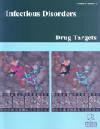
Full text loading...
As of early October 2020, the COVID-19 pandemic, caused by the novel coronavirus SARS-CoV-2, resulted in approximately 35 million cases and one million fatalities worldwide. Systemic lupus erythematosus (SLE) is an autoimmune disease marked by the generation of pathogenic autoantibodies and a lack of tolerance to nuclear self-antigens. Hypocomplementemia, or an abnormal blood complement deficit, is a reliable predictor of infection in SLE patients. Moreover, it has been found that immunoglobulin (Ig), particularly IgG and IgM, is lowered in SLE patients, which may be a factor in their heightened susceptibility to infection. Bloodstream autoantibodies, lymphopenia, aberrant T-cells, proinflammatory cytokines, and impaired regulatory systems all lead to an immune response that is aberrant in lupus patients. SLE patients exhibit impaired CD8 T-cell responses, including abnormal phagocytosis and chemotaxis. Recent study has shown that COVID-19 infections significantly boost type I interferon responses. Patients with SLE and Covid-19 infection typically get immune-suppressing drugs viz corticosteroids, Janus kinase inhibitors (JAK), and tocilizumab, which improve their immune systems and diminution susceptible to COVID-19 infections.

Article metrics loading...

Full text loading...
References


Data & Media loading...

